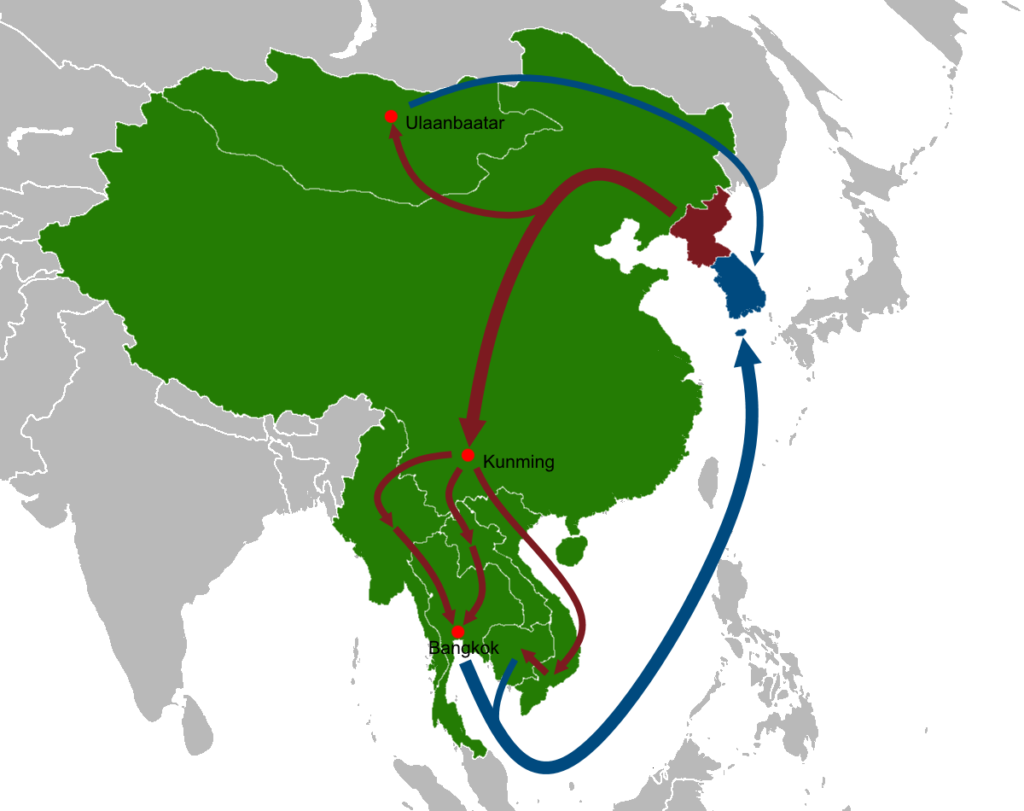The Peninsula
Attention on DPRK and China Policies that Result in Sex Trafficking

By Robert R. King
BBC (British Broadcasting Corporation) has just released an excellent report on the trafficking of North Korean defectors: “The North Korean women who had to escape twice” by BBC Korea editor Su-Min Hwang. The report gives first-hand details of North Korean defectors in China who were trafficked and provides an account of their heart-wrenching experiences.
This tragedy is the consequence of DPRK policies to prevent and severely punish individuals who attempt to leave. But the Chinese government is also complicit because North Koreans who are apprehended by Chinese officials are returned to the North with total disregard for the brutal abuse they will assuredly receive when they are forced back across the border. The Chinese have other options because South Korea is quite willing to take defectors, and most defectors want to go to the South. This BBC report provides an eloquent image of the horrific humanitarian consequences of these North Korean and Chinese policies.
Since the North Korean famine of the 1990s over 32,000 North Koreans have fled their homeland to seek a better life in South Korea, initially going through China. Most are individuals seeking opportunities to provide for themselves and their families because repressive discrimination based on family connections or presumed political leanings severely limit economic and educational opportunities for the majority of the population who are arbitrarily categorized as part of the so-called “hostile” or “wavering” classes.
In the six years Kim Jong-un has led the DPRK, the number of defectors who have chosen to leave North Korea and have gone to South Korea has declined by more than half from a high of 2,706 in 2011 to only 1,127 in 2017 according to South Korean government statistics. This is partly the result of tightening border control. The inter-Korean border—the Demilitarized Zone—is so heavily guarded that it is virtually impossible to cross. Areas adjacent to the border with China, the only other option for escape, are off-limits to anyone who does not live in the immediate border zone. North Korean border guards are trained to be tough on defectors, and reports appear frequently of border guards killing would-be defectors. Family members who remain in the North when relatives defect are severely punished and even executed.
Shortly after coming to power, Kim Jong-un sought to make the South appear less attractive to citizens from the North to discourage defections. Pyongyang media highly publicized “re-defections” by North Koreans who returned from the South with tales about the awful life there. The major media campaign against defection in 2012-2013 highlighted “re-defectors” giving extended reports about difficult conditions in the South and obsequious praise for Kim Jong-un welcoming them back. By raising questions about life in the South, regime intended to make Northerners more cautious about the tough choice of abandoning friends and family for an uncertain life in the South.
Those who decide to leave the North and succeed in getting into China still have a very difficult road. Chinese policy considers all refugees from North Korea to be economic migrants. Very occasionally China has allowed defectors to go to South Korea in order to punish or pressure the North Korean regime. The default Chinese position is that all North Koreans are to be returned to the North, although the Chinese know that they will receive harsh punishment, including imprisonment and brutal physical abuse.
North Koreans in China are in a very vulnerable position and subject to exploitation by unscrupulous locals. In this situation many women defectors—and over two-thirds of all defectors are women—are exploited and trafficked through forced “marriages” to rural Chinese peasants or pressed into the sex trade.
The excellent BBC report gives personal details of the experiences of two defectors who successfully left North Korea with the help of brokers, but were then sold to a sexcam operator just across the border in China. Imprisoned in a tiny apartment where they were guarded twenty-four hours a day, the defectors were forced to work long hours performing pornographic acts daily on a live webcam. One survived five years and another eight years before they were able to escape and make the precarious journey from northeast China to the Chinese border with Southeast Asia where they were finally able to escape with the help of South Korean non-government organizations and the South Korean government. Their story is grim, and the defectors’ willingness to share them gives first-hand insight into the brutality of the Kim regime toward its own people and highlights the China’s willing complicity in the inhumane treatment of these victims.
Other accounts by defectors confirm the scope and nature of these abuses. See reports in the South China Morning Post, Washington Post, Reuters, and The Irish Times.
Robert R. King is a Non-Resident Fellow at the Korea Economic Institute of America. He is former U.S. Special Envoy for North Korea Human Rights. The views expressed here are his own.
Picture from user Ceosad on Wikimedia Commons
